- Home
- George R. R. Martin
Dying of the Light Page 3
Dying of the Light Read online
Page 3
Dirk did not stir from the wing of the manta. The man looked down at him. “You are Dirk t’Larien and once you were Gwen’s lover.”
“And you are Jaan.”
“Jaan Vikary, of the Ironjade Gathering,” the other said. He stepped forward and raised his hands, palms outward and empty.
Dirk knew the gesture from somewhere. He stood and pressed his own palms against the Kavalar’s. As he did, he noticed something else. Jaan wore a belt of black oiled metal, and a laser pistol was at his side.
Vikary caught his look and smiled. “All Kavalars go armed. It is a custom—one we value. I hope you are not as shocked and biased as Gwen’s friend, the Kimdissi. If so, that is your failure, not ours. Larteyn is part of High Kavalaan, and you cannot expect our culture to conform to yours.”
Dirk sat down again. “No. I should have expected it, perhaps, from what I heard last night. I do find it strange. Is there a war on somewhere?”
Vikary smiled very thinly—an even, deliberate baring of teeth. “There is always a war somewhere, t’Larien. Life itself is a war.” He paused. “Your name: t’Larien. Unusual. I have not heard its like before, nor has my teyn Garse. Where is your homeworld?”
“Baldur. A long way off, on the other side of Old Earth. But I scarcely remember it. My parents came to Avalon when I was very young.”
Vikary nodded. “And you have traveled, Gwen has told me. Which worlds have you seen?”
Dirk shrugged. “Prometheus, Rhiannon. Thisrock, Jamison’s World, among others. Avalon, of course. A dozen altogether, mostly places more primitive than Avalon, where my knowledge is in demand. It’s usually easy to find work if you’ve been to the Institute, even if you’re not especially skilled or talented. Fine with me. I like traveling.”
“Yet you have never been beyond the Tempter’s Veil until now. Only in the jambles, and never to the outworlds. You will find things different here, t’Larien.”
Dirk frowned. “What was that word you used? Jambles?”
“The jambles,” Vikary repeated. “Ah. Wolfman slang. The jambled worlds, the jumbled worlds, what you will. A phrase that I acquired from several Wolfmen who were among my friends during my studies on Avalon. It refers to the star sphere between the outworlds and the first- and second-generation colonies near Old Earth. It was the jambles where the Hrangans saturated the stars and ruled their slaveworlds and fought the Earth Imperials. Most of the planets you named were known then, and they were touched hard by the ancient war and jumbled by the collapse. Avalon itself is a second-generation colony, once a sector capital. That is some distinction, do you think, for a world so very far in these centuries ai-shattered?”
Dirk nodded agreement. “Yes. I know the history, a little. You seem to know a lot of it.”
“I am a historian,” Vikary said. “Most of my work has been devoted to making history out of the myths of my own world, High Kavalaan. Ironjade sent me to Avalon at great expense to search the data banks of the old computers for just that purpose. Yet I spent two years of study there, had much free time, and developed an interest in the broader history of man.”
Dirk said nothing but only looked out again toward the dawn. The red disc of Fat Satan was half-risen now, and a third yellow star could be seen. It was slightly to the north of the others, and it was only a star. “The red star is a supergiant,” Dirk mused, “but up there it seems only a bit larger than Avalon’s sun. It must be pretty far away. It should be colder, the ice should be here now. But it’s only chilly.”
“That is our doing,” Vikary told him with some pride. “Not High Kavalaan, in truth, yet outworld work nonetheless. Tober preserved much of the lost forcefield technology of the Earth Imperials during the collapse, and the Toberians have added to it in the centuries since then. Without their shield no Festival could ever have been held. At perihelion, the heat of the Hellcrown and Fat Satan would have burned off Worlorn’s atmosphere and boiled its sea, but the Toberian shield blocked off that fury and we had a long bright summer. Now, in like manner, it helps to hold in the heat. Yet it has its limits, as does everything. The cold will come.”
“I did not think we’d meet like this,” Dirk said. “Why did you come up here?”
“A chance. Long years ago Gwen told me that you liked to watch the dawn. And other things as well, Dirk t’Larien. I know far more of you than you of me.”
Dirk laughed. “Well, that’s true. I never knew you existed until last night.”
Jaan Vikary’s face was hard and serious. “But I do exist. Remember that, and we can be friends. I hoped to find you alone and tell you this before the others woke. This is not Avalon now, t’Larien, and today is not yesterday. It is a dying Festival world, a world without a code, so each of us must cling tightly to whatever codes we bring with us. Do not test mine. Since my years on Avalon, I have tried to think of myself as Jaan Vikary, but I am still a Kavalar. Do not force me to be Jaantony Riv Wolf high-Ironjade Vikary.”
Dirk stood up. “I’m not sure what you mean,” he said. “But I think I can be cordial enough. I certainly have nothing against you, Jaan.”
That seemed to be enough to satisfy Vikary. He nodded slowly, and reached into the pocket of his trousers. “An emblem of my friendship and concern for you,” he said. In his hand was a black metal collar pin, a tiny manta. “Will you wear it during your time here?”
Dirk took it from his hand. “If you want me to,” he said, smiling at the other’s formality. He fixed it to his collar.
“Dawn is gloomy here,” Vikary said, “and day is not much better. Come down to our quarters. I will rouse the others, and we can eat.”
The apartment that Gwen shared with the two Kavalars was immense. The high-ceilinged living room was dominated by a fireplace two meters high and twice as long, and above was a slate-gray mantel where glowering gargoyles perched to guard the ashes. Vikary led Dirk past them, over an expanse of deep black carpet, into a dining chamber that was nearly as large. Dirk sat in a high-backed wooden chair, one of twelve along the great table, while his host went to fetch food and company.
He returned shortly, bearing a platter of thinly sliced brown meat and a basket of cold biscuits. He set them in front of Dirk, then turned and left again.
No sooner had he gone than another door opened and Gwen entered, smiling sleepily. She wore an old headband, faded trousers, and a shapeless green top with wide sleeves. He could see the glint of her heavy jade-and-silver bracelet, tight on her left arm. With her, a step behind, came another man, nearly as tall as Vikary but several years younger and much more slender, clad in a short-sleeved jumpsuit of brown-red chameleon cloth. He glanced at Dirk out of intense blue eyes, the bluest eyes that Dirk had ever seen, set in a gaunt hatchet face above a full red beard.
Gwen sat down. The red beard paused in front of Dirk’s chair. “I am Garse Ironjade Janacek,” he said. He offered his palms. Dirk rose to press them.
Garse Ironjade Janacek, Dirk noted, wore a laser pistol at his waist, slung in a leather holster on a silvery mesh-steel belt. Around his right forearm was a black bracelet, twin to Vikary’s—iron and what looked to be glowstone.
“You probably know who I am,” Dirk said.
“Indeed,” Janacek replied. He had a rather malicious grin. Both of them sat down.
Gwen was already munching on a biscuit. When Dirk resumed his seat, she reached out across the table and fingered the little manta pin on his collar, smiling at some secret amusement. “I see that you and Jaan found each other,” she said.
“More or less,” Dirk replied, and just then Vikary returned, with his right hand wrapped awkwardly around the handles of four pewter mugs, and his left hand holding a pitcher of dark beer. He deposited it all in the center of the table, then made one last trip to the kitchen for plates and ironware and a glazed jar of sweet yellow paste that he told them to spread on the biscuits.
While he was gone, Janacek pushed the mugs across the table at Gwen. “Pour,” he said to her, in a
rather peremptory tone, before turning his attention back to Dirk. “I am told you were the first man she knew,” he said, while Gwen was pouring. “You left her with an imposing number of vile habits,” he said, smiling coolly. “I am tempted to take insult and call you out for satisfaction.”
Dirk looked baffled.
Gwen had filled three of the four mugs with beer and foam. She set one in front of Vikary’s place, the second by Dirk, and took a long draft from the third. Then she wiped her lips with the back of her hand, smiled at Janacek, and handed him the empty mug. “If you’re going to threaten poor Dirk because of my habits,” she said, “then I suppose I must challenge Jaan for all the years I’ve had to suffer yours.”
Janacek turned the empty beer mug in his hands and scowled. “Betheyn-bitch,” he said in an easy conversational voice. He poured his own beer.
Vikary was back an instant later. He sat down, took a swipe from his own mug, and they began to eat. Dirk discovered very soon that he liked having beer for breakfast. The biscuits, smeared over with a thick coating of the sweet paste, were also excellent. The meat was rather dry.
Janacek and Vikary questioned him throughout the meal, while Gwen sat back and looked bemused, saying very little. The two Kavalars were a study in contrasts. Jaan Vikary leaned forward as he spoke (he was still bare-chested, and every so often he yawned and scratched himself absently) and maintained a tone of general friendly interest, smiling frequently, seemingly much more at ease than he had been up on the roof. Yet he struck Dirk as somehow deliberate, a tight man who was making a conscious effort to loosen; even his informalities—the smiles, the scratching—seemed studied and formal. Garse Janacek, while he sat more erect than Vikary and never scratched and had all the formal Kavalar mannerisms of speech, nevertheless seemed more genuinely relaxed, like a man who enjoyed the restrictions his society had laid on him and would not even think of trying to break free. His speech was animated and abrasive; he tossed off insults like a flywheel tossing sparks, most of them directed at Gwen. She tossed a few back, but feebly; Janacek played the game much better than she did. A lot of it gave the appearance of casual, affectionate give-and-take, but several times Dirk thought he caught a hint of real hostility. Vikary tended to frown at every exchange.
When Dirk happened to mention his year on Prometheus, Janacek quickly seized on it. “Tell me, t’Larien,” he said, “do you consider the Altered Men human?”
“Of course,” Dirk said. “They are. Settled by the Earth Imperials way back during the war. The modern Prometheans are only the descendants of the old Ecological Warfare Corps.”
“In truth,” Janacek said, “yet I would disagree with your conclusion. They have manipulated their own genes to such a degree that they have lost the right to call themselves men at all, in my opinion. Dragonfly men, undersea men, men who breathe poison, men who see in the dark like Hruun, men with four arms, hermaphrodites, soldiers without stomachs, breeding sows without sentience—these creatures are not men. Or not-men, more precisely.”
“No,” Dirk said. “I’ve heard the term not-man. It’s common parlance on a lot of worlds, but it means human stock that’s been mutated so it can no longer interbreed with the basic. The Prometheans have been careful to avoid that. The leaders—they’re fairly normal themselves, you know, only minor alterations for longevity and such—well, the leaders regularly swoop down on Rhiannon and Thisrock, raiding, you know. For ordinary Earth-normal humans—”
“Yet even Earth is less than Earth-normal these past few centuries,” Janacek interrupted. Then he shrugged. “I should not break in, should I? Old Earth is too far away, in any event. We only hear century-old rumors. Continue.”
“I made my point,” Dirk said. “The Altered Men are still human. Even the low castes, the most grotesque, the failed experiments discarded by the surgeons—all of them can interbreed. That’s why they sterilize them, they’re afraid of offspring.”
Janacek took a swallow of beer and regarded him with those intense blue eyes. “They do interbreed, then?” He smiled. “Tell me, t’Larien, during your year on that world did you ever have occasion to test this personally?”
Dirk flushed and found himself glancing toward Gwen, as if it were somehow all her fault. “I haven’t been celibate these past seven years, if that’s what you mean,” he snapped.
Janacek rewarded his answer with a grin, and looked at Gwen. “Interesting,” he said to her. “The man spends several years in your bed and then immediately turns to bestiality.”
Anger flashed across her face; Dirk still knew her well enough to recognize that. Jaan Vikary looked none too pleased either. “Garse,” he said warningly.
Janacek deferred to him. “My apologies, Gwen,” he said. “No insult was intended. T’Larien no doubt acquired a taste for mermaids and mayfly women quite independently of you.”
“Will you be going out into the wild, t’Larien?” Vikary asked loudly, deliberately wrenching the conversation away from the other Kavalar.
“I don’t know,” Dirk said, sipping his beer. “Should I?”
“I’d never forgive you if you didn’t,” Gwen said, smiling.
“Then I’ll go. What’s so interesting?”
“The ecosystem—it’s forming and dying, all at the same time. Ecology was a forgotten science in the Fringe for a long time. Even now the outworlds boast less than a dozen trained eco-engineers between them. When the Festival came, Worlorn was seeded with life forms from fourteen different worlds with almost no thought as to the interaction. Actually more than fourteen worlds were involved, if you want to count multiple transplants—animals brought from Earth to Newholme to Avalon to Wolfheim, and thence to Worlorn, that sort of thing.
“What Arkin and I are doing is a study of how things have worked out. We’ve been at it a couple years already, and there’s enough work to keep us busy for a decade more. The results should be of particular interest to farmers on all the outworlds. They’ll know which Fringe flora and fauna they can safely introduce to their homeworlds, and under what conditions, and which are poison to an ecosystem.”
“The animals from Kimdiss are proving particularly poisonous,” Janacek growled. “Much like the manipulators themselves.”
Gwen grinned at him. “Garse is annoyed because it looks as though the black banshee is heading toward extinction,” she told Dirk. “It’s a shame, really. On High Kavalaan itself they’ve been hunted to the point where the species is clearly endangered, and it had been hoped that the specimens turned loose here twenty years ago would establish themselves and multiply, so they could be recaptured and taken back to High Kavalaan before the cold came. It hasn’t worked out that way. The banshee is a fearful predator, but at home it can’t compete with man, and on Worlorn it has had its niche appropriated by an infestation of tree-spooks from Kimdiss.”
“Most Kavalars think of the banshee only as a plague and a menace,” Jaan Vikary explained. “In its natural habitat it is a frequent man-killer, and the hunters of Braith and Redsteel and the Shanagate Holding think of banshee as the ultimate game, with a single exception. Ironjade has always been different. There is an ancient myth, of the time Kay Iron-Smith and his teyn Roland Wolf-Jade were fighting alone against an army of demons in the Lameraan Hills. Kay had fallen, and Roland, standing over him, was weakening by the moment, when from over the hills the banshees came, many of them flying together, black and thick enough to block out the sun. They fell hungrily onto the demon army and consumed them, one and all, leaving Kay and Roland alive. Later, when that teyn-and-teyn found their cave of women and established the first Ironjade holdfast, the banshee became their brother-beast and sigil. No Ironjade has ever killed a banshee, and legend says that whenever a man of Ironjade is in danger of his life a banshee will appear to guide and protect him.”
“A pretty story,” Dirk said.
“It is more than a story,” Janacek said. “There is a bond between Ironjade and banshee, t’Larien. Perhaps it is psionic,
perhaps the things are sentient, perhaps it is all instinct. I do not pretend to know. Yet the bond exists.”
“Superstition,” Gwen said. “You really must not think too badly of Garse. It’s not his fault that he never got much of an education.”
Dirk spread paste across a biscuit and looked at Janacek. “Jaan mentioned that he was a historian, and I know what Gwen does,” he said. “What about you? What do you do?”
The blue eyes stared coldly. Janacek said nothing.
“I get the impression,” Dirk said, continuing, “that you are not an ecologist.”
Gwen laughed.
“That impression is uncannily correct, t’Larien,” Janacek said.
“What are you doing on Worlorn, then? For that matter”—he shifted his gaze to Jaan Vikary—“what does a historian find to do in a place like this?”
Vikary cradled his beer mug between two large hands and drank from it thoughtfully. “That is simple enough,” he said. “I am a highbond Kavalar of the Ironjade Gathering, bonded to Gwen Delvano by jade-and-silver. My betheyn was sent to Worlorn by vote of the highbond council, so it is natural that I am here too, and my teyn. Do you understand?”
“I suppose. You keep Gwen company, then?”
Janacek appeared very hostile. “We protect Gwen,” he said icily. “Usually from her own folly. She should not be here at all, yet she is, so we must be here as well, As to your earlier question, t’Larien, I am an Ironjade, teyn to Jaantony high-Ironjade. I can do anything that my holdfast might require of me: hunt or farm, duel, make highwar against our enemies, make babies in the bellies of our eyn-kethi. That is what I do. What I am you already know. I have told you my name.”

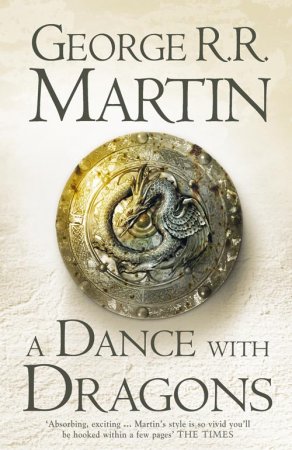 A Dance with Dragons
A Dance with Dragons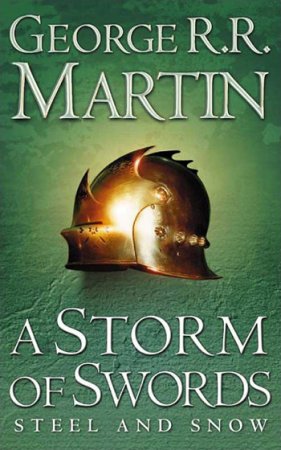 A Storm of Swords
A Storm of Swords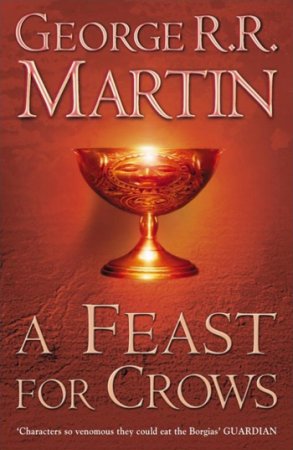 A Feast for Crows
A Feast for Crows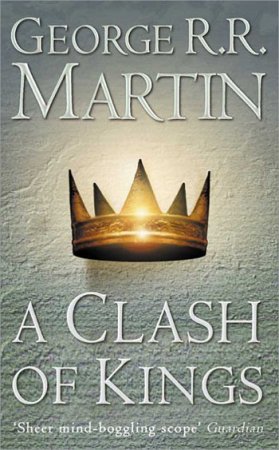 A Clash of Kings
A Clash of Kings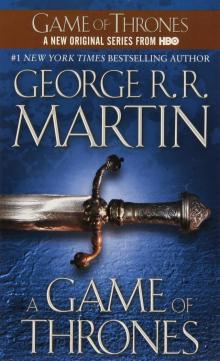 A Game of Thrones
A Game of Thrones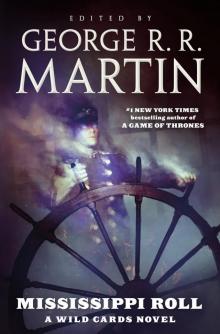 Mississippi Roll
Mississippi Roll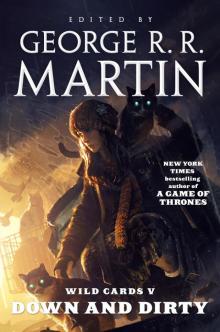 Wild Cards V: Down and Dirty
Wild Cards V: Down and Dirty Busted Flush
Busted Flush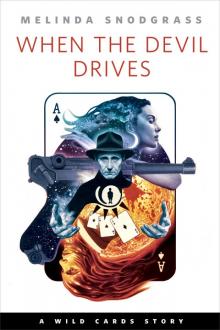 When the Devil Drives
When the Devil Drives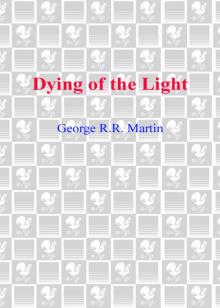 Dying of the Light
Dying of the Light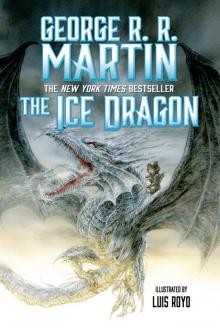 The Ice Dragon
The Ice Dragon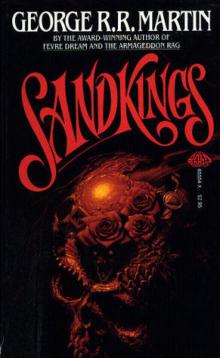 Sandkings
Sandkings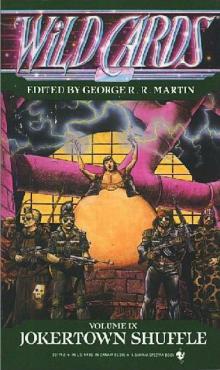 Jokertown Shuffle
Jokertown Shuffle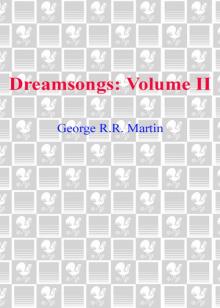 Dreamsongs. Volume II
Dreamsongs. Volume II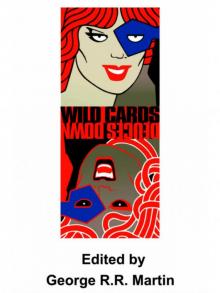 Deuces Down
Deuces Down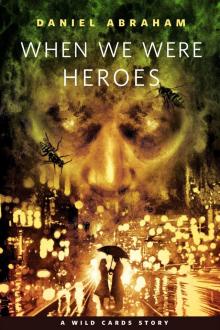 When We Were Heroes
When We Were Heroes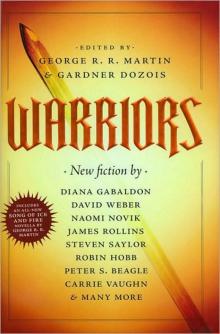 Warriors
Warriors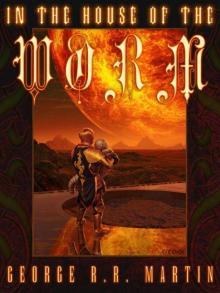 In the House of the Worm
In the House of the Worm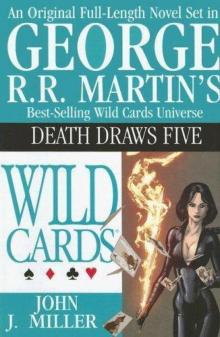 Death Draws Five
Death Draws Five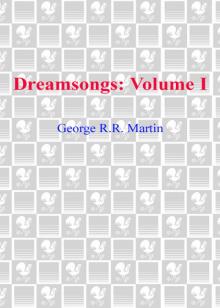 Dreamsongs. Volume I
Dreamsongs. Volume I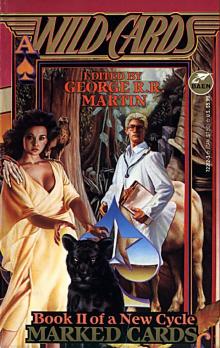 Marked Cards
Marked Cards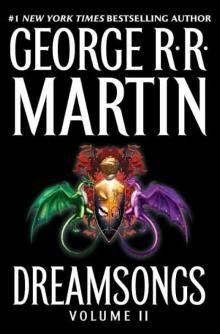 Dreamsongs
Dreamsongs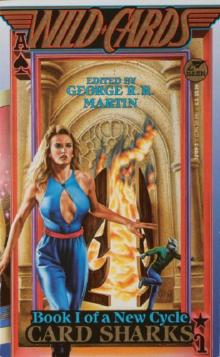 Card Sharks
Card Sharks Dangerous Women
Dangerous Women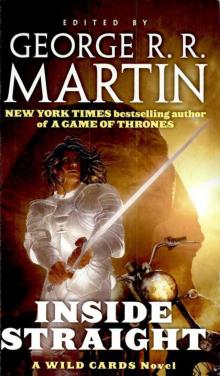 Inside Straight
Inside Straight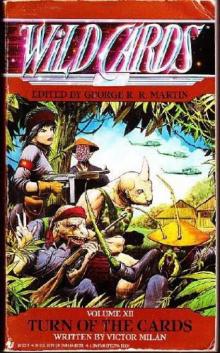 Turn of the Cards
Turn of the Cards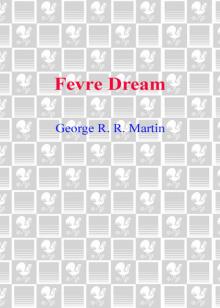 Fevre Dream
Fevre Dream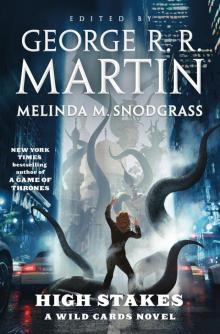 High Stakes: A Wild Cards Novel
High Stakes: A Wild Cards Novel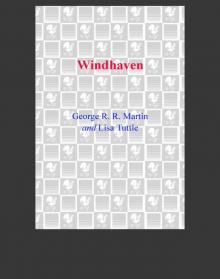 Windhaven
Windhaven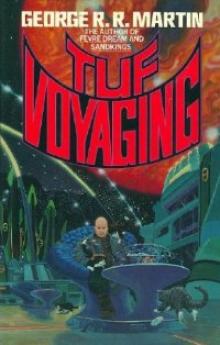 Tuf Voyaging
Tuf Voyaging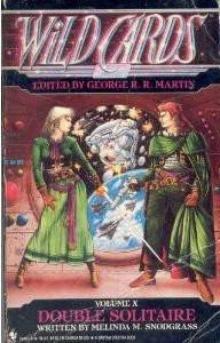 Double Solitaire
Double Solitaire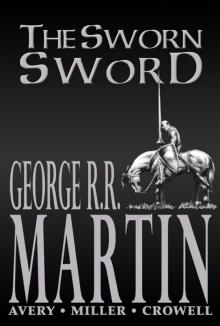 The Sworn Sword
The Sworn Sword Low Chicago
Low Chicago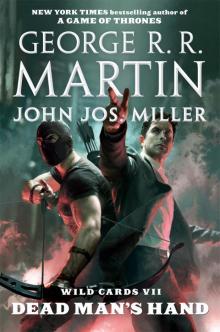 Dead Man's Hand
Dead Man's Hand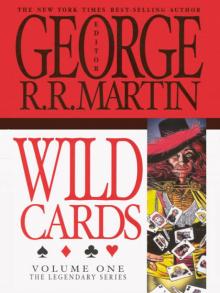 Wild Cards
Wild Cards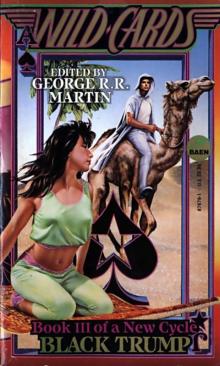 Black Trump
Black Trump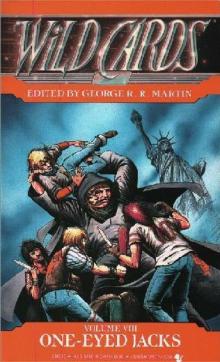 One Eyed Jacks
One Eyed Jacks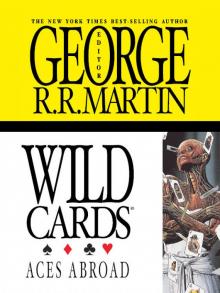 Wild Cards: Aces Abroad
Wild Cards: Aces Abroad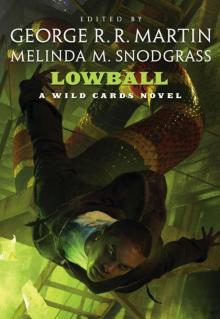 Lowball: A Wild Cards Novel
Lowball: A Wild Cards Novel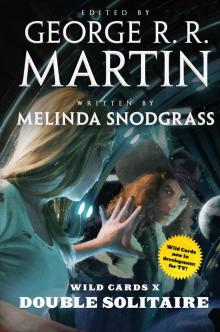 Double Solitaire (2019 Edition)
Double Solitaire (2019 Edition)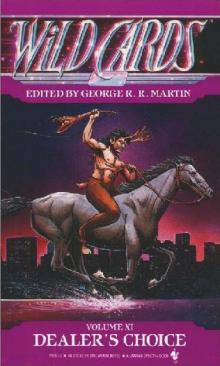 Dealer's Choice
Dealer's Choice Ace in the Hole
Ace in the Hole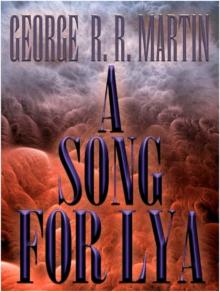 A Song for Lya: And Other Stories
A Song for Lya: And Other Stories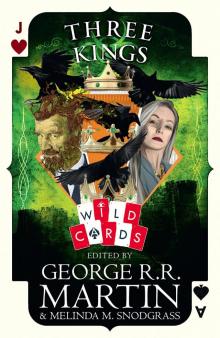 Three Kings
Three Kings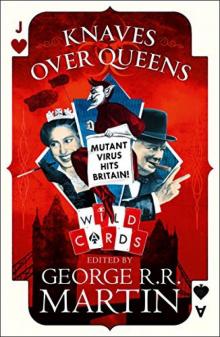 Knaves Over Queens
Knaves Over Queens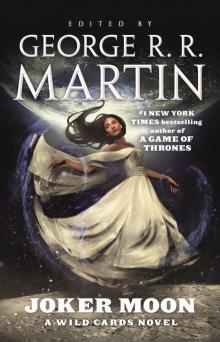 Joker Moon
Joker Moon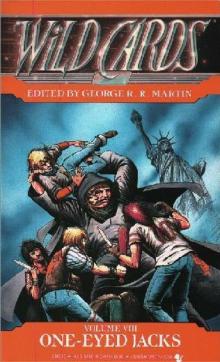 One Eyed Jacks wc-8
One Eyed Jacks wc-8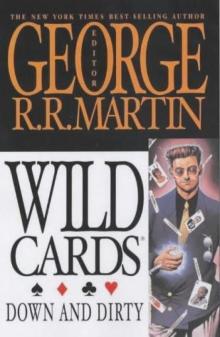 Down And Dirty wc-5
Down And Dirty wc-5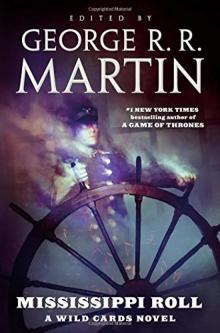 Mississippi Roll_A Wild Cards Novel
Mississippi Roll_A Wild Cards Novel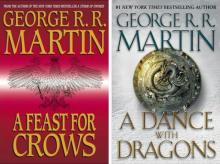 A Feast for Dragons
A Feast for Dragons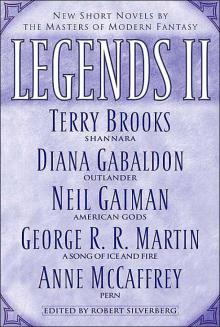 The Sworn Sword ttodae-2
The Sworn Sword ttodae-2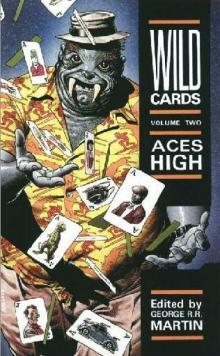 Aces High wc-2
Aces High wc-2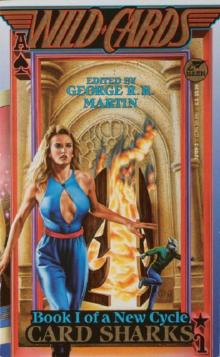 Wild Cards 13 : Card Sharks
Wild Cards 13 : Card Sharks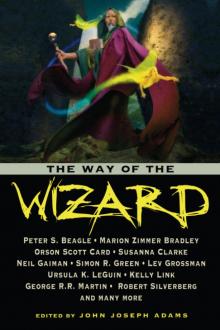 Way of the Wizard
Way of the Wizard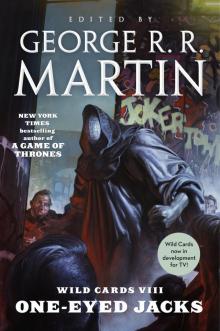 Wild Cards VIII: One-Eyed Jacks
Wild Cards VIII: One-Eyed Jacks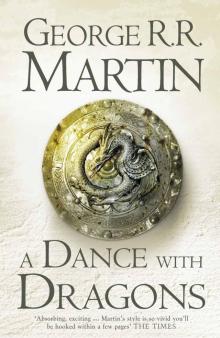 A Dance With Dragons: Book 5 of A Song of Ice and Fire (Song of Ice & Fire 5)
A Dance With Dragons: Book 5 of A Song of Ice and Fire (Song of Ice & Fire 5)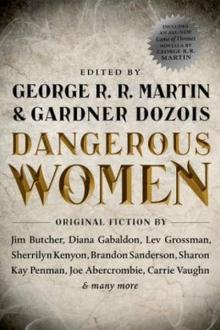 The Princess and The Queen, Or, The Blacks and The Greens (a song of ice and fire)
The Princess and The Queen, Or, The Blacks and The Greens (a song of ice and fire)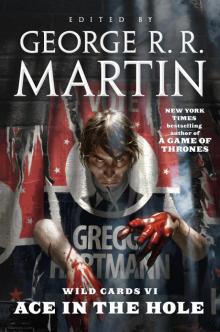 Wild Cards VI--Ace in the Hole
Wild Cards VI--Ace in the Hole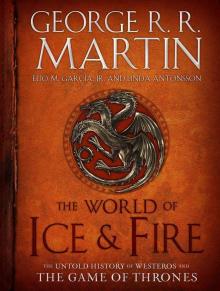 The World of Ice & Fire: The Untold History of Westeros and the Game of Thrones (A Song of Ice and Fire)
The World of Ice & Fire: The Untold History of Westeros and the Game of Thrones (A Song of Ice and Fire)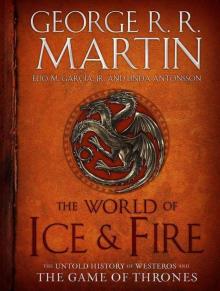 The World of Ice & Fire: The Untold History of Westeros and the Game of Thrones
The World of Ice & Fire: The Untold History of Westeros and the Game of Thrones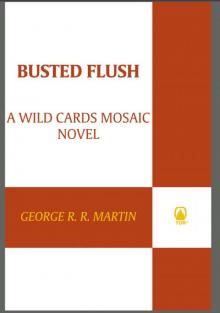 Busted Flush wc-19
Busted Flush wc-19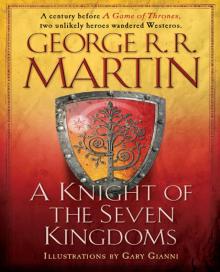 A Knight of the Seven Kingdoms
A Knight of the Seven Kingdoms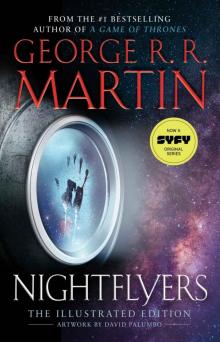 Nightflyers: The Illustrated Edition
Nightflyers: The Illustrated Edition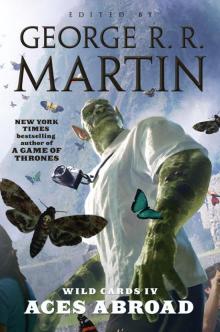 Wild Cards IV
Wild Cards IV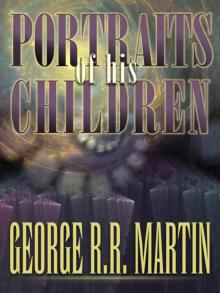 Portraits of His Children
Portraits of His Children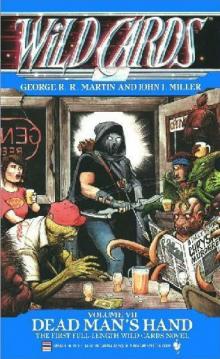 Dead Mans Hand wc-7
Dead Mans Hand wc-7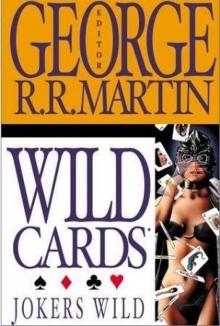 Jokers Wild wc-3
Jokers Wild wc-3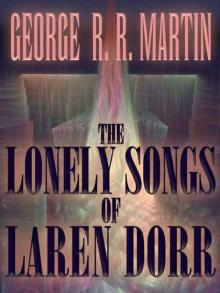 The Lonely Songs of Laren Dorr
The Lonely Songs of Laren Dorr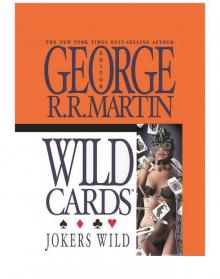 Wild Cards III: Jokers Wild
Wild Cards III: Jokers Wild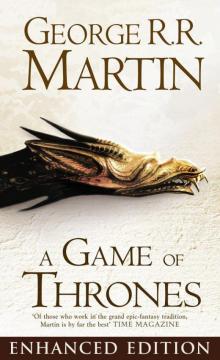 A Game of Thrones Enhanced Edition
A Game of Thrones Enhanced Edition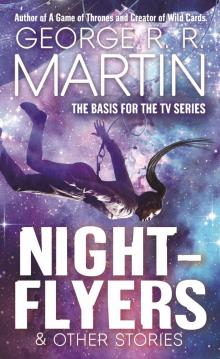 Nightflyers & Other Stories
Nightflyers & Other Stories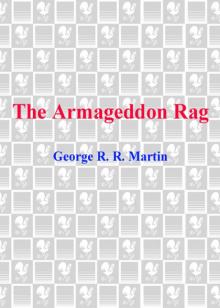 Armageddon Rag
Armageddon Rag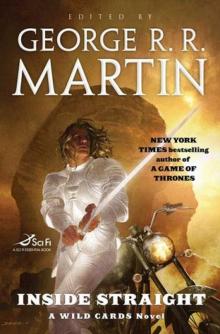 Wild Cards: Inside Straight
Wild Cards: Inside Straight A Song for Lya
A Song for Lya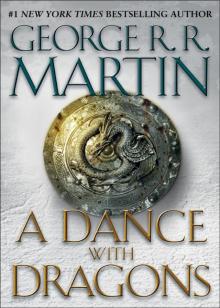 A Dance with Dragons: A Song of Ice and Fire: Book Five
A Dance with Dragons: A Song of Ice and Fire: Book Five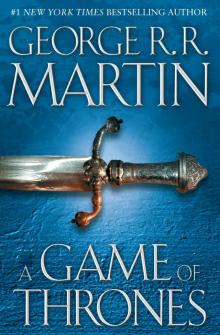 Song of Fire & Ice 01 - A Game of Thrones
Song of Fire & Ice 01 - A Game of Thrones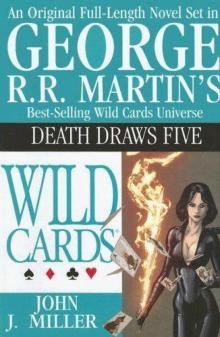 Death Draws Five wc-17
Death Draws Five wc-17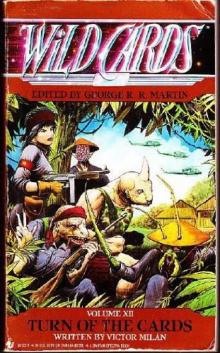 Turn of the Cards w-12
Turn of the Cards w-12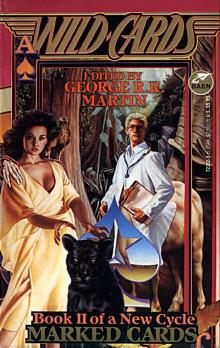 Wild Cards 14 - Marked Cards
Wild Cards 14 - Marked Cards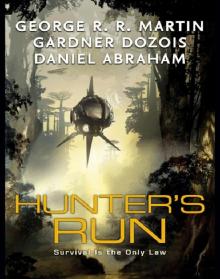 Hunter's Run
Hunter's Run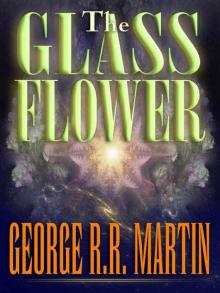 The Glass Flower
The Glass Flower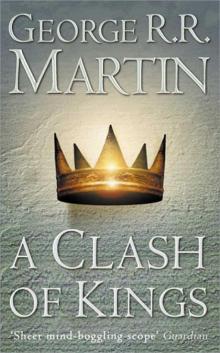 A Clash of Kings asoiaf-2
A Clash of Kings asoiaf-2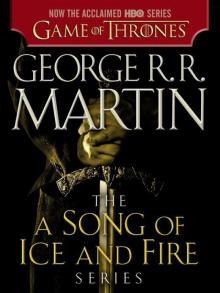 A Game of Thrones 5-Book Bundle: A Song of Ice and Fire Series: A Game of Thrones, A Clash of Kings, A Storm of Swords, A Feast for Crows, and A Dance with Dragons (Song of Ice & Fire)
A Game of Thrones 5-Book Bundle: A Song of Ice and Fire Series: A Game of Thrones, A Clash of Kings, A Storm of Swords, A Feast for Crows, and A Dance with Dragons (Song of Ice & Fire)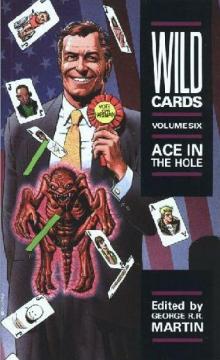 Ace In The Hole wc-6
Ace In The Hole wc-6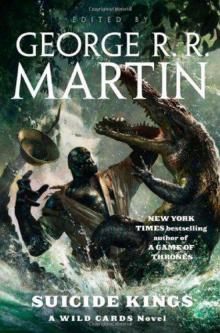 Suicide Kings wc-20
Suicide Kings wc-20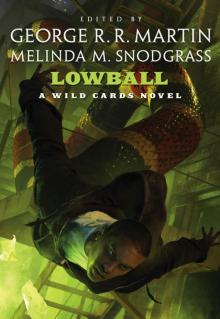 Lowball
Lowball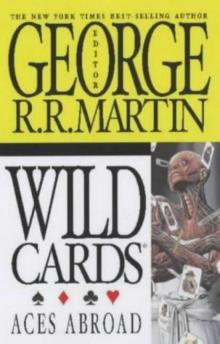 Aces Abroad wc-4
Aces Abroad wc-4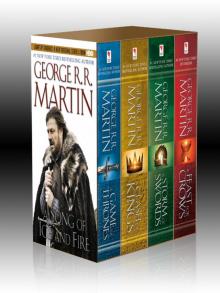 George R. R. Martin's a Game of Thrones 4-Book Bundle
George R. R. Martin's a Game of Thrones 4-Book Bundle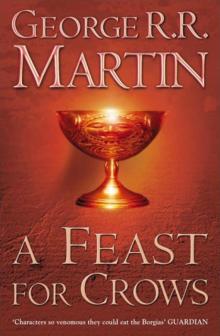 A Feast for Crows asoiaf-4
A Feast for Crows asoiaf-4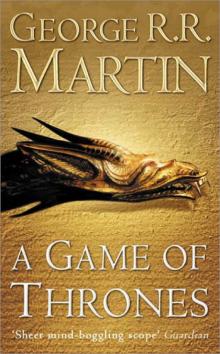 A Game of Thrones asoiaf-1
A Game of Thrones asoiaf-1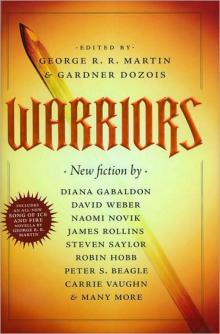 The Mystery Knight ttodae-3
The Mystery Knight ttodae-3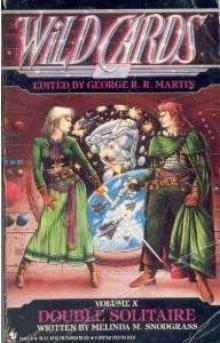 Double Solitaire w-10
Double Solitaire w-10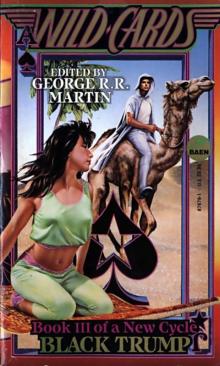 Wild Cards 15 - Black Trump
Wild Cards 15 - Black Trump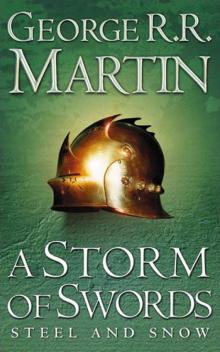 A Storm of Swords asoiaf-3
A Storm of Swords asoiaf-3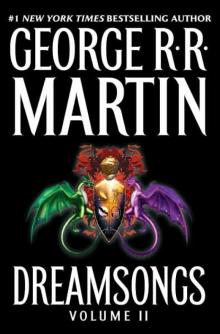 The Hedge Knight ttodae-1
The Hedge Knight ttodae-1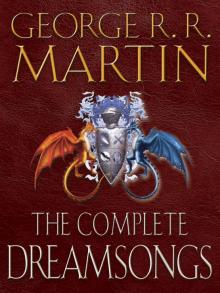 Dreamsongs 2-Book Bundle
Dreamsongs 2-Book Bundle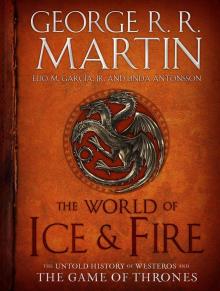 The World of Ice & Fire
The World of Ice & Fire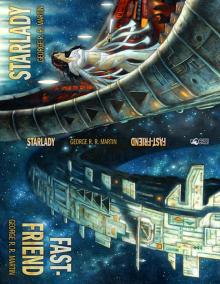 Starlady & Fast-Friend
Starlady & Fast-Friend Old Mars
Old Mars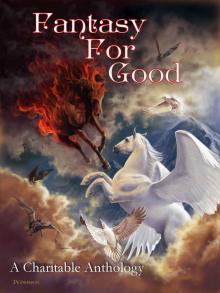 Fantasy For Good: A Charitable Anthology
Fantasy For Good: A Charitable Anthology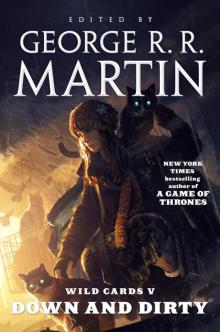 Wild Cards V
Wild Cards V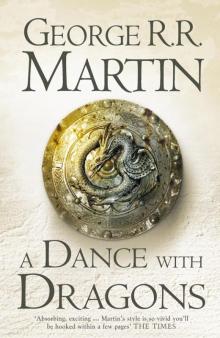 A Dance with Dragons asoiaf-5
A Dance with Dragons asoiaf-5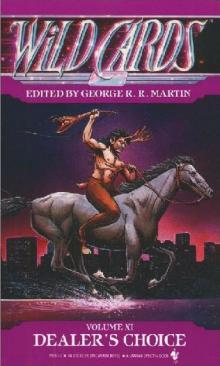 Dealer's Choice w-11
Dealer's Choice w-11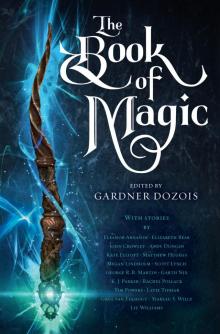 The Book of Magic
The Book of Magic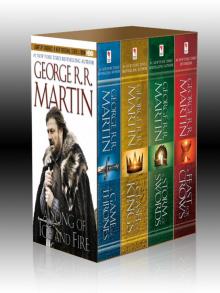 A Game of Thrones 4-Book Bundle
A Game of Thrones 4-Book Bundle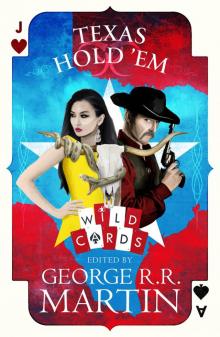 Texas Hold 'Em
Texas Hold 'Em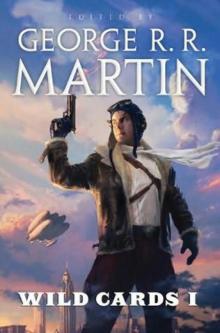 Wildcards wc-1
Wildcards wc-1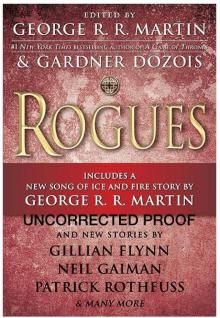 Rogues
Rogues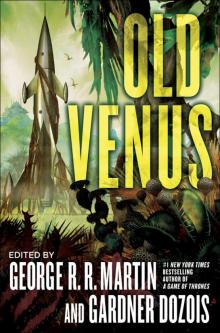 Old Venus
Old Venus